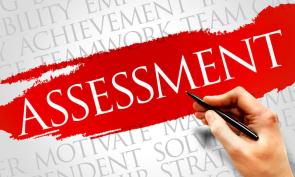
Being a new partner is what I would call Phase I in a cycle of change for yourself. We need to learn the patterns of change, and we need to learn how to manage our lives and our careers amid this pattern of change.
As Tom Tierney, formerly the worldwide Managing Director of Bain & Co. said, “Fundamentally, it's about building a life and not a resume, and in order to do that, you have to be clear on your purpose, you have to be clear on your sense of values, you have to be clear on what is meaningful to you and what will create significance. Your challenge is not only to earn a living, but to create meaning through your work.”
It is the journey and not the destination that counts. Be open to surprises and complexities.
The “Roller-Coaster” Rule
New partners should know the context of their legal careers. And the context can be explained in a few key ideas. The first idea is that the rules are changing. Constant change is the one thing you can count on these days. And let's face it: few professionals are well-versed in the language of change. People are changing careers, they are changing locations, they are changing relationships, and we even see continuously shifting values.
Even the rules of hard work are changing. We all believe in hard work; it used to be an automatic gateway to permanent security and success. But now there is no guarantee that your life will improve because of the quality of the work that you do. Your past doesn't predict your future success. Your have to aim at goals and be ready to relinquish them if the rules change.
Another thing to understand is that you almost have to let go of the linear rule of life that has brought you to where you are today. It worked well in a stable, slow-moving, non-technical society, but in the 21st century, it is a rule that does not work at all. The linear rule requires features that we don't often see in our work environments these days. Linear careers, lifetime employment models, a stable society and an ability to forecast and predict the future.
Instead of the linear rule, we might want to think about embracing what we call “the roller coaster rule.” We don't necessarily have to love this rule, but we do have to accept it. When you examine your life and your career, you will observe that you have experienced many high points and many low points. Although our lives and careers are filled with peaks and valleys, we are only trained to get to the peaks. We also need to learn how to live in the valleys. The “up” times are good times, the wonderfully challenging times when money, connections, client relationships, rewards and living one's dreams all come together.
Making partner is an up time. Be wary, however, inevitably, like the roller coaster, you are bound to go down at some point—and how you handle those down times becomes very critical in your life. The down times are about letting go of what isn't working and finding new ways of doing things. These are transition times when you should be seeking advice from others, looking to your own insights and really being true to yourself, a time when you should devote your energies to deciding how you want to reorient your life.
If the Doldrums Hit
Becoming a new partner is a “go for it” period and it is a period of stability. Phase I represents the challenges that come to a person who has worked really hard to get where she is going and who is really willing to put in what it takes to gain a sense of achievement. What is critical for you at this point is to identify your own purpose. What is your vision for yourself? What are the values that you want to hold on to? What is really important to you at this time? You also want to remember that it is time to really create a plan. And at this point in your life, your focus should be on building a life, not merely a resume. And you should be actively designing a life plan for yourself in terms of how you will manage your career as you move from possibly an up time into a down time.
You also want to identify those relationship that are important to you both at home and at work and elicit the support of others as you transition into this period of success in your life.
Phase I usually lasts as long as the work that you are doing is challenging, of high standards, and provides opportunities for growth. But what I hear frequently from those who have gone before you on this journey, there comes a point where all of a sudden the excitement of being a partner may slip into the routine of being a partner, and once you get to a point where work becomes routine, you don't feel like you are challenging yourself.
There are all kinds of reasons for this. The feelings that exist in this stage sometimes are feelings of a sense of decline. You may feel a little trapped by the amount of work that you have and the nature of the work that you have. You may also feel trapped because you don't feel that there are enough support or resources to get the work done.
The essential skills at this point are really to look at what is going on and choose a route for yourself that will help you regain some of the positive feelings of an earlier stage of your life, not to go back, but to consider what aspects of your past you want to take into the future. You should also recognize at this point that this is probably a mini-career transition and that everybody does go through this cycle of renewal and the cycle of change. And, you have two choices, either to stay and get stuck in a set of doldrums about your career, or move out of this cycle by looking for new challenges and new areas. It doesn't mean looking for a new profession but looking for new ways to enhance your current practice.
This is where many partners get stuck, and this is where they then begin to have productivity problems. And what is required at this stage is to enhance, learn new skills, develop a broader portfolio, take on more management and leadership responsibilities and make sure that your home life is aligned with your work life. It is probably one of the greatest opportunities for continuous evaluation of your life and career. During this phase, you do want to make a quick turnaround, and you do want to get back into gear. However, if you find that you can't make a quick turnaround and that you really are beginning to ask yourself significant and deeper questions, what you may find is that it is time to do a complete inventory of your home and work life and really begin to restructure and reshape the direction of your career.
And that is what I would call moving into a major transformation or really coming to terms with your professional identity and with your personal and professional identity. You know you're ready for that when you really begin to ask some fundamental questions. What do I hold on to? What do I let go of? What do I take on?
What Do You Really Want?
The third phase if you start asking yourself the serious questions is what I call a time where you really come to terms with yourself. It is your solo time. It is a time in a career where your feel quiet, you want to explore new ways to do things, you want to reconstruct what you are doing, reconstruct your practice, maybe expand it, maybe experiment with it. It is a time also of becoming introspective, and it's a time to really focus in on yourself. Most professionals tend to be selfless and make extreme sacrifices for their work, for their clients, for their firm, and frequently they don't take the time to take care of themselves. If those tough questions keep coming up, if the doldrums keep coming up, if your are continuously feeling trapped, angry, disenchanted, resentful, then it is time to move in, I think to a Phase III where you really do come to terms with what it is you want to do with the rest of your life. The essential skills here lie in coming to terms with work on your terms, not on others' terms, and this can be a very exciting time in one's career.
Once you come to grips with what it is your really want and you want to do it on your terms, you enter into a very predictable fourth phase in your career which is getting ready and a time for experimenting in your career. It's a time for taking on new clients, it's a time for expanding your work, it's a time for letting the routine parts of your practice go to maybe younger associates, it's a time for taking on maybe more leadership within the firm. It really is your time to explore, experiment, get some new training and discover other talents that you may not have used for years.
This Phase IV is an exciting time because all of the sudden you feel purposeful again, you're more active, you're preparing for more challenges and you are continuously learning, and you somehow get back into the Phase I of go-for-it again.
Sailing Ahead
Every successful professional has gone through adversity. Some people work through the adversity and come out the other side better for it, while others let the adversity get them down and keep them from moving forward. If you talk to some of your older partners, you will see that those who worked through the adversity are truly leaders of the firm today and those who let themselves get trampled by the adversity are the partners who are sitting in their offices angry, cynical, depressed, causing all kinds of troubles around the firm. How you choose to live your life as a partner is totally up to you.
To survive in a leadership role in today's workplace, you always have to keep a perspective. Take the time to reflect on where you are. See the whole of your career and not just the tactical day-to-day events.
Relationships are critical, particularly in law firms that pride themselves on consensus and collegiality (even though that's more rhetoric than reality in some firms). As a young partner, it is critical that you find partners who are truly your partners, that you find those with whom you can relate and discuss things. It is also critical to understand who may stand in your way of achieving your goals.
As a new partner, it becomes very critical to learn the skill of taking work off your shoulders, learning the arts both of delegation and planning for work, because you can't get rid of work if you don't know how to organize it.
It is also important to anchor yourself. Distinguish your professional identity as a lawyer from who you are as a person. Know yourself and love yourself. Know what strengths you bring to the legal professional, and know your weaknesses. Know how you want to grow and change.
Find confidantes outside of your firm whom you can talk to honestly and openly, who do not have a self interest in what you decide. Have people outside of the firm who can give you an objective opinion about yourself, your firm, your role within the firm, the nature of your work.
Perhaps the words of Mark Twain say it best: “Twenty years from now you will be more disappointed by the things you didn't do than by the ones you did. Throw off the bow lines, sail away from the safe harbor. Catch the trade winds in your sails. Explore. Imagine. Discover who you really are and what is most important in your life.”
About Harrison Barnes
No legal recruiter in the United States has placed more attorneys at top law firms across every practice area than Harrison Barnes. His unmatched expertise, industry connections, and proven placement strategies have made him the most influential legal career advisor for attorneys seeking success in Big Law, elite boutiques, mid-sized firms, small firms, firms in the largest and smallest markets, and in over 350 separate practice areas.
A Reach Unlike Any Other Legal Recruiter
Most legal recruiters focus only on placing attorneys in large markets or specific practice areas, but Harrison places attorneys at all levels, in all practice areas, and in all locations-from the most prestigious firms in New York, Los Angeles, and Washington, D.C., to small and mid-sized firms in rural markets. Every week, he successfully places attorneys not only in high-demand practice areas like corporate and litigation but also in niche and less commonly recruited areas such as:
- Immigration Law
- Workers Compensation
- Insurance
- Family Law
- Trust and Estate
- Municipal law
- And many more...
This breadth of placements is unheard of in the legal recruiting industry and is a testament to his extraordinary ability to connect attorneys with the right firms, regardless of market size or practice area.
Proven Success at All Levels
With over 25 years of experience, Harrison has successfully placed attorneys at over 1,000 law firms, including:
- Top Am Law 100 firms such including Sullivan and Cromwell, and almost every AmLaw 100 and AmLaw 200 law firm.
- Elite boutique firms with specialized practices
- Mid-sized firms looking to expand their practice areas
- Growing firms in small and rural markets
He has also placed hundreds of law firm partners and has worked on firm and practice area mergers, helping law firms strategically grow their teams.
Unmatched Commitment to Attorney Success - The Story of BCG Attorney Search
Harrison Barnes is not just the most effective legal recruiter in the country, he is also the founder of BCG Attorney Search, a recruiting powerhouse that has helped thousands of attorneys transform their careers. His vision for BCG goes beyond just job placement; it is built on a mission to provide attorneys with opportunities they would never have access to otherwise. Unlike traditional recruiting firms, BCG Attorney Search operates as a career partner, not just a placement service. The firm's unparalleled resources, including a team of over 150 employees, enable it to offer customized job searches, direct outreach to firms, and market intelligence that no other legal recruiting service provides. Attorneys working with Harrison and BCG gain access to hidden opportunities, real-time insights on firm hiring trends, and guidance from a team that truly understands the legal market. You can read more about how BCG Attorney Search revolutionizes legal recruiting here: The Story of BCG Attorney Search and What We Do for You.
The Most Trusted Career Advisor for Attorneys
Harrison's legal career insights are the most widely followed in the profession.
- His articles on BCG Search alone are read by over 150,000 attorneys per month, making his guidance the most sought-after in the legal field. Read his latest insights here.
- He has conducted hundreds of hours of career development webinars, available here: Harrison Barnes Webinar Replays.
- His placement success is unmatched-see examples here: Harrison Barnes' Attorney Placements.
- He has created numerous comprehensive career development courses, including BigLaw Breakthrough, designed to help attorneys land positions at elite law firms.
Submit Your Resume to Work with Harrison Barnes
If you are serious about advancing your legal career and want access to the most sought-after law firm opportunities, Harrison Barnes is the most powerful recruiter to have on your side.
Submit your resume today to start working with him: Submit Resume Here
With an unmatched track record of success, a vast team of over 150 dedicated employees, and a reach into every market and practice area, Harrison Barnes is the recruiter who makes career transformations happen and has the talent and resources behind him to make this happen.
A Relentless Commitment to Attorney Success
Unlike most recruiters who work with only a narrow subset of attorneys, Harrison Barnes works with lawyers at all stages of their careers, from junior associates to senior partners, in every practice area imaginable. His placements are not limited to only those with "elite" credentials-he has helped thousands of attorneys, including those who thought it was impossible to move firms, find their next great opportunity.
Harrison's work is backed by a team of over 150 professionals who work around the clock to uncover hidden job opportunities at law firms across the country. His team:
- Finds and creates job openings that aren't publicly listed, giving attorneys access to exclusive opportunities.
- Works closely with candidates to ensure their resumes and applications stand out.
- Provides ongoing guidance and career coaching to help attorneys navigate interviews, negotiations, and transitions successfully.
This level of dedicated support is unmatched in the legal recruiting industry.
A Legal Recruiter Who Changes Lives
Harrison believes that every attorney-no matter their background, law school, or previous experience-has the potential to find success in the right law firm environment. Many attorneys come to him feeling stuck in their careers, underpaid, or unsure of their next steps. Through his unique ability to identify the right opportunities, he helps attorneys transform their careers in ways they never thought possible.
He has worked with:
- Attorneys making below-market salaries who went on to double or triple their earnings at new firms.
- Senior attorneys who believed they were "too experienced" to make a move and found better roles with firms eager for their expertise.
- Attorneys in small or remote markets who assumed they had no options-only to be placed at strong firms they never knew existed.
- Partners looking for a better platform or more autonomy who successfully transitioned to firms where they could grow their practice.
For attorneys who think their options are limited, Harrison Barnes has proven time and time again that opportunities exist-often in places they never expected.
Submit Your Resume Today - Start Your Career Transformation
If you want to explore new career opportunities, Harrison Barnes and BCG Attorney Search are your best resources. Whether you are looking for a BigLaw position, a boutique firm, or a move to a better work environment, Harrison's expertise will help you take control of your future.
Submit Your Resume Here to get started with Harrison Barnes today.
Harrison's reach, experience, and proven results make him the best legal recruiter in the industry. Don't settle for an average recruiter-work with the one who has changed the careers of thousands of attorneys and can do the same for you.
About BCG Attorney Search
BCG Attorney Search matches attorneys and law firms with unparalleled expertise and drive, while achieving results. Known globally for its success in locating and placing attorneys in law firms of all sizes, BCG Attorney Search has placed thousands of attorneys in law firms in thousands of different law firms around the country. Unlike other legal placement firms, BCG Attorney Search brings massive resources of over 150 employees to its placement efforts locating positions and opportunities its competitors simply cannot. Every legal recruiter at BCG Attorney Search is a former successful attorney who attended a top law school, worked in top law firms and brought massive drive and commitment to their work. BCG Attorney Search legal recruiters take your legal career seriously and understand attorneys. For more information, please visit www.BCGSearch.com.
Harrison Barnes does a weekly free webinar with live Q&A for attorneys and law students each Wednesday at 10:00 am PST. You can attend anonymously and ask questions about your career, this article, or any other legal career-related topics. You can sign up for the weekly webinar here: Register on Zoom
Harrison also does a weekly free webinar with live Q&A for law firms, companies, and others who hire attorneys each Wednesday at 10:00 am PST. You can sign up for the weekly webinar here: Register on Zoom
You can browse a list of past webinars here: Webinar Replays
You can also listen to Harrison Barnes Podcasts here: Attorney Career Advice Podcasts
You can also read Harrison Barnes' articles and books here: Harrison's Perspectives
Harrison Barnes is the legal profession's mentor and may be the only person in your legal career who will tell you why you are not reaching your full potential and what you really need to do to grow as an attorney--regardless of how much it hurts. If you prefer truth to stagnation, growth to comfort, and actionable ideas instead of fluffy concepts, you and Harrison will get along just fine. If, however, you want to stay where you are, talk about your past successes, and feel comfortable, Harrison is not for you.
Truly great mentors are like parents, doctors, therapists, spiritual figures, and others because in order to help you they need to expose you to pain and expose your weaknesses. But suppose you act on the advice and pain created by a mentor. In that case, you will become better: a better attorney, better employees, a better boss, know where you are going, and appreciate where you have been--you will hopefully also become a happier and better person. As you learn from Harrison, he hopes he will become your mentor.
To read more career and life advice articles visit Harrison's personal blog.






